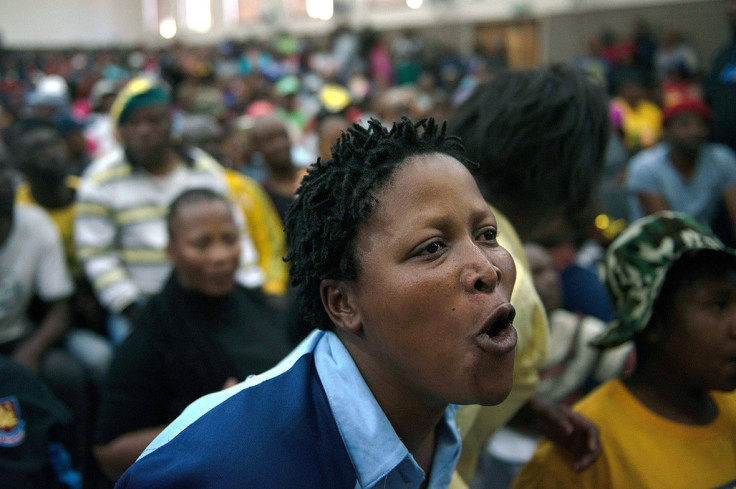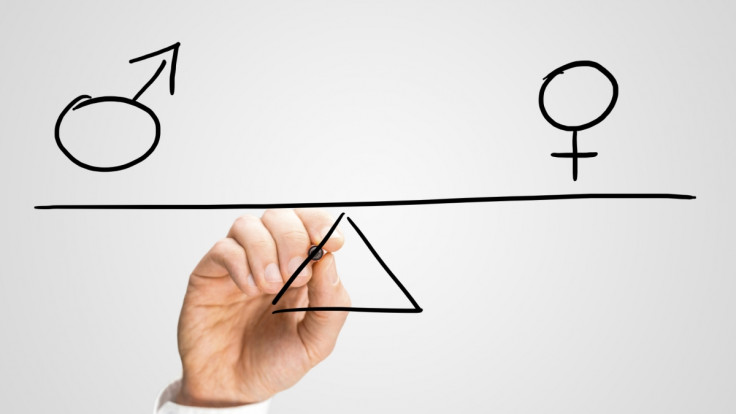A woman's place is in the home, say majority of surveyed men in the Middle East
View that women are not fit to be leaders and that it is more important to educate boys, also prevails.
A majority of men surveyed in the Middle East and North Africa (Mena) believe in the traditional and inequitable attitudes towards women, which include that they are not fit to be leaders, should not work outside the home and that it is more important to educate boys than girls.
The report noted that younger women in the region indicated a consistent desire for greater gender equality.
Research by the International Men and Gender Equality Survey (Images) is the first study of its kind in the Mena region to take the views of men "as sons and husbands and fathers, at home and at work, in public and private life".
The study aims to "better understand how they see their positions as men and their attitudes and actions towards gender equality."
The advocacy project, which questioned nearly 10,000 people aged between 18 and 59, found that men held less progressive attitudes towards equality compared to women.
The study noted that strong majorities of men across the four countries surveyed believed "it is their role to monitor and control the movements of the women and girls in their households."
Equally, in some countries, the majorities of women surveyed not only affirm but "also appear to accept male guardianship. However, in others, they challenge the idea, in theory, if not in practice."
The Mena region has some of the lowest rates of women's economic participation in the world. The study noted that given the economic stability and high unemployment rates among the youth in the region, "it is not surprising that three-quarters or more of men in the four countries, and women at nearly the same rates, support the priority of men's access to jobs over women's."
It added; "Women are still widely defined - by men and women alike - as wives and mothers first, rather than by professional or workplace achievements."
While cracks are appearing, the study noted that this cautious progressive willingness to accept a woman as a boss and work in gender-integrated workplaces only holds if traditional gender roles are also maintained at home.

"Many men in the region support women working outside the home - as long, it seems as he is still the main breadwinner and she is still the main caregiver and organizer of domestic life."
The study, which was carried out in Morocco, Palestine, Egypt and Lebanon, revealed that more than half of the Egyptian men surveyed believed that "there are times when a woman deserves to be beaten," compared with less than a third of the women.
And 75% of Egyptian women believed that married women should have the same rights to work outside the home as their husbands, but this was supported by only 31% of Egyptian men.
Long way to go for men and women
In the Gender Equitable Men scale, which ranges from the least equitable views (0) and the most equitable (3), respondents in Egypt recorded the lowest scores while those in Lebanon had the highest.
Younger women generally held more progressive views than older women. This however could not be said for men, whose attitudes were not 'substantially different' among men from different age groups in Morocco, Palestine and Egypt, The Guardian reports.
"There is a long way to go for men to fully accept and support equality for women in the Arab region, as in many parts of the world," the co-author of the research and president of the equality campaign Promundo, Gary Barker said.
"Across all four countries, we see that one of the biggest disrupters of gender inequality is when men take on more of the activities in the home typically defined as women's roles."
The study also revealed that the most significant factors in how people viewed equality were their wealth, education level and the example set by their parents.

It said that both men and women were most likely to hold equitable views on gender if their mothers had more education and their fathers were more involved in domestic tasks.
For instance, the statement that a man should have the final world about decision in the home, was accepted by more than 90% of men and 58.5% of women in Egypt.
Gender-based violence
The study also revealed that 10-45% of married men reported using physical violence against their female partners. The rate of emotional violence by men against their wives stood at 20-80%.
On street-based sexual harassment, between 31-64% of men admitted to carrying out such acts and shockingly, the majority of the men, including up to 90% in some of the countries, said "they did it for fun".
The report noted that two-thirds to three quarters of the men interviewed engaged in victim blaming, justifying their behaviour by suggesting the women dressed provocatively.
© Copyright IBTimes 2025. All rights reserved.






















